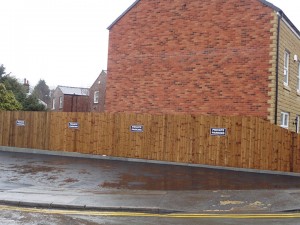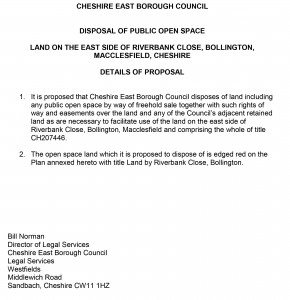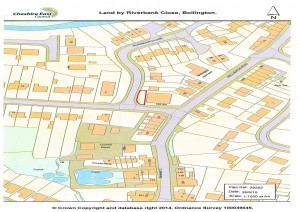- Home
- News
- What’s On
- Activities for Children
- Arts & Crafts
- Autos and Bikes
- Business events
- Car Boot & Auctions
- Charity events
- Churches & Religious
- Comedy
- Dance
- Days out & Local interest
- Education
- Exhibition
- Film
- Gardening & Horticulture
- Health
- Markets & Fairs
- Music
- Nature & Environment
- Spiritual
- Sport
- Talks and Discussions
- Theatre and Drama
- Business
- Local Information
- Jobs
- Deaths
- Charity events
- Contact Us
Not so Happy Valley mired in controversy again

Cheshire’s own Happy Valley – Bollington – is again mired in a controversy relating to the old Co-op store site on Albert Road.
Regular readers will recall that several years ago the Co-op was granted planning permission to extend their building onto its car park – which created a highly contentious and potentially lethal scenario for both pedestrians and traffic.
Delivery lorries were blocking the few parking spaces left and vehicles turning into Albert Road never quite new what they would encounter.
As for pedestrians it was a case of running the gauntlet.
Considering the first question raised by planners, for anyone wishing to open a new store, is parking provision – it shook most Bollingtonians to learn that planners had allowed the Co-op to do the opposite – and effectively remove what car parking they had.
Several years later, the old Kay Metzeler site came up for redevelopment and plans were approved for a residential scheme – to include a supermarket.
We’d guess that – finally comprehending their massive mistake – and following any number of complaints from locals – both Bollington Town Council and Cheshire East set out to encourage the Co-op to move to the Kay Metzeler development.
No doubt all sorts of incentives had been offered to the Co-op before allegations surfaced that Bollington Town Council and/or Cheshire East Council had even offered the Co-op a sum of money – from the Kay Metzeler developer’s Section 106* contribution (*see below) – to help with the Co-op’s relocation.
Unsurprisingly denials were immediately forthcoming – but eventually the Co-op did move.
Our understanding is that a critical element of the Council’s agreement with the Co-op was that the Albert Road site would be redeveloped as residential – to preclude another retailer from coming onto the site.
Nice eh?
Within days of the Co-op vacating the building contractors moved in to demolish the store – and a few weeks later construction of several houses commenced.
The houses were duly completed and sold. Then, just recently, the strip of land on Riverbank Close – to the side of the new houses – was tarmacced over by the residential developer – and signs stating that the land was private parking were placed on the fencing.
However, it’s now been revealed that the developer doesn’t own the land – Cheshire East does – and they’ve issued a notice –http://www.cheshireeast.gov.uk/council_and_democracy/council_information/public_notices/open_space_disposal.aspx – detailing their determination to dispose of the site.
But all of this begs several questions.
When the developer applied for planning permission for the houses they would have had to detail parking provisions – our understanding is that is now a fundamental requirement for new-builds.
Assuming that the strip of land in question was specified by the applicant as being for parking did they claim ownership of that land?
If not, how come they were given planning permission?
If they did, surely the person responsible for checking over the application should have realised that the land wasn’t owned by the applicant – and without a legal agreement in place couldn’t claim it as parking space.
The Council’s notice doesn’t make clear how the land will be disposed of – it merely states ‘by way of freehold sale”.
Will it be by auction or private tender – or has a deal already been done with the developer?
What happens if the land is bought by someone other than the developer and those parking spaces were a critical element of the development? Will the houses have to come down?
We emailed Cheshire East’s Legal Services Department and received the following response: “The notice in the Macclesfield Express is not the Council inviting offers for the land in question, it is merely making the public aware that the Council is disposing of public open space at Riverbank Close, Bollington.”
So it looks like yet another done deal then.
*Section 106 of The Town and Country Planning Act 1990 as amended provides the Local Planning Authority with the power to enter into an S106 agreement.
S106 agreements can
- secure financial contributions to provide infrastructure or affordable housing
- secure affordable housing and to specify the type and timing of this housing
- restrict the development or use of the land in any specified way
- require specified operations or activities to be carried out in, on, under or over the land
- require the land to be used in any specified way




You must be logged in to post a comment Login